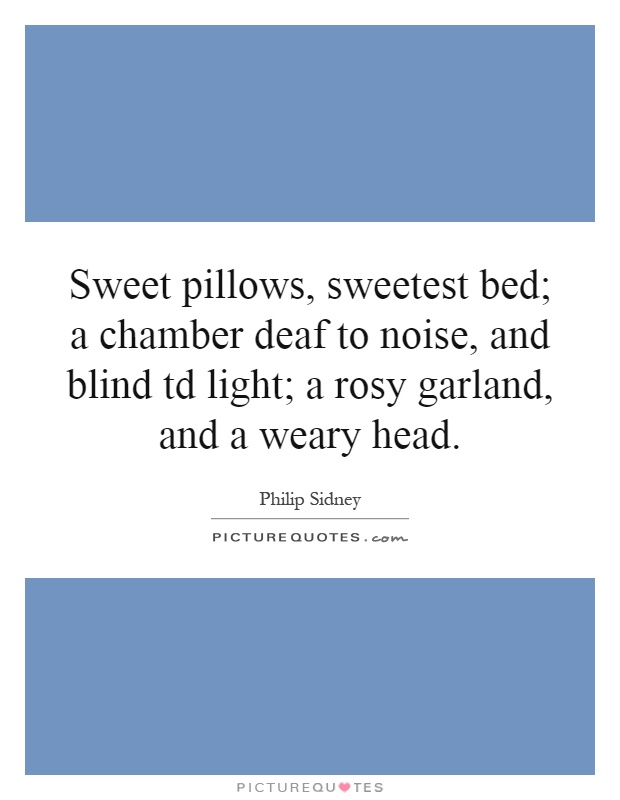Sweet pillows, sweetest bed; a chamber deaf to noise, and blind td light; a rosy garland, and a weary head

Sweet pillows, sweetest bed; a chamber deaf to noise, and blind td light; a rosy garland, and a weary head
Sir Philip Sidney was a prominent figure in the Elizabethan era, known for his poetry, prose, and courtly manners. His works often reflected the ideals of chivalry, love, and honor, and he was considered one of the greatest poets of his time. One of his most famous works is the sonnet sequence "Astrophil and Stella," which explores the themes of unrequited love and the complexities of human emotions.The line "Sweet pillows, sweetest bed; a chamber deaf to noise, and blind to light; a rosy garland, and a weary head" from Sidney's sonnet sequence perfectly captures the essence of his poetic style. In this line, Sidney uses vivid imagery to create a sense of comfort and tranquility. The image of "sweet pillows" and "sweetest bed" evokes a feeling of relaxation and peace, while the description of a "chamber deaf to noise, and blind to light" suggests a retreat from the chaos and distractions of the outside world.
The mention of a "rosy garland" adds a touch of beauty and elegance to the scene, symbolizing love and affection. The juxtaposition of the "weary head" with the other images in the line creates a sense of contrast and tension, hinting at the emotional turmoil and inner struggles that often characterize Sidney's poetry.
Overall, this line reflects Sidney's skillful use of language and imagery to convey complex emotions and ideas. Through his poetry, Sidney invites readers to explore the depths of human experience and to contemplate the nature of love, desire, and longing. His work continues to inspire and resonate with audiences today, making him a timeless and enduring figure in English literature.












 Friendship Quotes
Friendship Quotes Love Quotes
Love Quotes Life Quotes
Life Quotes Funny Quotes
Funny Quotes Motivational Quotes
Motivational Quotes Inspirational Quotes
Inspirational Quotes